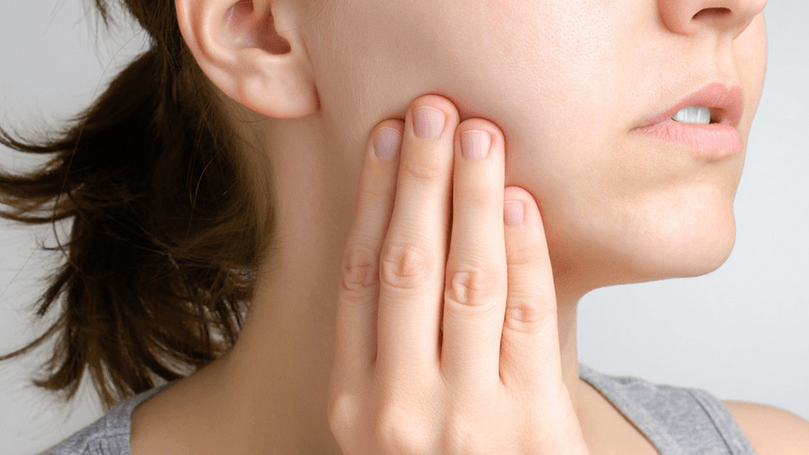Toothaches can be incredibly painful and disruptive to our daily lives. They can make eating, sleeping, and concentrating on tasks difficult. While seeking professional dental care for toothaches is always important, some natural remedies can provide temporary relief. One such remedy is apple cider vinegar (ACV). This article will explore how to use apple cider vinegar for toothache and discuss its potential benefits.

Understanding Toothaches
Before delving into the usage of apple cider vinegar, it’s important to understand toothaches and their causes. Toothaches occur when the nerve endings within a tooth’s pulp become irritated or inflamed.
Common causes of Toothache
A toothache can have several common causes. Here are some of the most typical reasons people experience toothaches:
- Dental Cavities: Tooth decay or dental cavities are one of the primary causes of toothaches. When bacteria in the mouth produce acids that erode the tooth enamel, it forms cavities. These cavities can expose the sensitive inner layers of the tooth, causing pain and discomfort.
- Gum Disease: Gum disease, also known as periodontal disease, can cause toothaches. It occurs when the gum tissues surrounding the teeth become infected or inflamed. Advanced gum disease can lead to gum recession, exposing the tooth roots and causing sensitivity and pain.
- Tooth Fracture: A cracked or fractured tooth can result in a toothache. Tooth fractures can occur for various reasons, such as trauma, biting down on hard objects, or weakening of the tooth structure over time. The pain may be intermittent or constant, depending on the severity of the fracture.
- Tooth Abscess: A tooth abscess is a pocket of pus that forms within the tooth or surrounding tissues. It usually develops as a result of a bacterial infection. An abscess can cause severe throbbing pain, sensitivity to hot or cold temperatures, facial swelling, and even fever.
- Impacted Wisdom Teeth: Wisdom teeth, also known as third molars, can sometimes become impacted. Impacted wisdom teeth can cause pain, swelling, and discomfort.
- Dental Trauma: Accidents or injuries to the mouth can cause toothaches. Physical trauma, such as a blow to the face, can damage teeth, leading to pain and sensitivity.

The Benefits of Apple Cider Vinegar
Apple cider vinegar has gained popularity as a natural remedy for various ailments due to its potential health benefits.
Here are a few potential benefits of apple cider vinegar for toothache:
- Antibacterial Properties: Apple cider vinegar contains acetic acid, known to have antibacterial properties. Rinsing the mouth with diluted apple cider vinegar may help reduce the bacteria.
- PH Balancing: Apple cider vinegar is acidic, and it is thought that rinsing with a diluted solution could help balance the pH in the mouth. It can help maintain a balanced pH and help create an environment less favorable for bacterial growth.
- Temporary Pain Relief: Swishing a diluted mixture of apple cider vinegar in the mouth can temporarily numb the area and relieve toothache pain. However, this effect is likely to be short-lived.
How to Use Apple Cider Vinegar for Toothache
1. Rinsing with Apple Cider Vinegar
To use apple cider vinegar for toothache, you can create a simple rinse. Dilute one tablespoon of apple cider vinegar in a glass of warm water.
Swish the solution in your mouth for about 30 seconds, making sure to reach the affected tooth or area. Spit out the mixture and rinse your mouth thoroughly with water. Repeat this process a few times a day or as needed for temporary relief.
2. Gargling with Apple Cider Vinegar
Gargling with apple cider vinegar may relieve toothaches that extend to the gums or throat. Mix one tablespoon of apple cider vinegar with a cup of warm water.
Gently gargle the solution in your throat for about 30 seconds, ensuring it reaches the affected area.
Spit out the mixture and rinse your mouth with water afterward. Use this gargle a few times a day or as necessary.
3. Apple Cider Vinegar Compress
Another method involves using apple cider vinegar in the form of a compress. Soak a clean cloth or cotton ball in undiluted apple cider vinegar.
Apply the compress directly to the affected area and hold it there for a few minutes. The apple cider vinegar may help reduce inflammation and temporarily alleviate toothache. Repeat this process as needed throughout the day.
Precautions
It’s important to exercise caution when using apple cider vinegar for toothaches, as its acidic nature can potentially harm tooth enamel. Here are some considerations:
- Dilute the vinegar: Never use undiluted apple cider vinegar directly on your teeth or gums. Instead, mix one part apple cider vinegar with two parts water to reduce acidity.
- Short exposure: Limit the contact time of the diluted solution with your teeth. Swish it around your mouth for only a short period, and rinse thoroughly afterward.
- Consult a dentist: While home remedies like apple cider vinegar may offer temporary relief, they cannot address the underlying cause of a toothache. It’s always recommended to consult a dentist to determine and treat the root cause of the pain.
Conclusion
Apple cider vinegar is a natural remedy that may temporarily relieve toothaches. Its antibacterial and anti-inflammatory properties and ability to balance pH levels in the mouth make it a potential solution for managing toothache discomfort.
However, it’s crucial to remember that apple cider vinegar is not a substitute for professional dental care. If you experience a persistent toothache or any dental issues, it’s advisable to seek the expertise of a dentist.
FAQs
1. Can apple cider vinegar cure tooth decay?
No, apple cider vinegar cannot cure tooth decay. It may temporarily relieve toothache discomfort, but it’s essential to seek professional dental care to address the underlying cause of tooth decay.
2. How often should I use apple cider vinegar for toothache?
You can use apple cider vinegar for toothache a few times daily or as needed for temporary relief. However, it is important to dilute it with water and exercise moderation to avoid potential side effects.
3. Can I use apple cider vinegar if I have sensitive teeth?
If you have sensitive teeth, it’s advisable to consult with your dentist before using apple cider vinegar. The acidic nature of vinegar may cause sensitivity or irritation in some individuals.
4. Can apple cider vinegar replace professional dental treatment?
No, apple cider vinegar cannot replace professional dental treatment. It can only provide temporary relief for toothache discomfort. It’s crucial to visit a dentist to address the underlying dental issues causing the toothache.
5. Are there any side effects of using apple cider vinegar for toothache?
Excessive use of apple cider vinegar may cause irritation or a burning sensation in the mouth. It’s important to dilute it with water and use it in moderation to avoid potential side effects.






